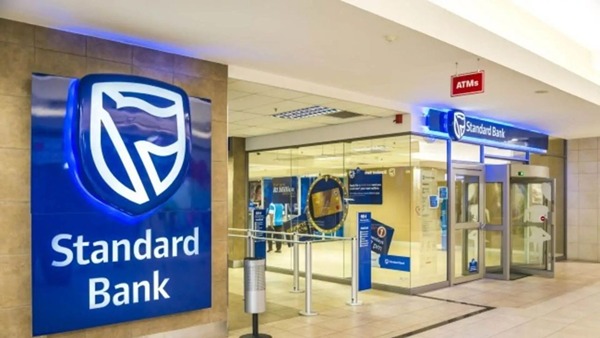According to Standard Bank, the second half of 2024 will see a considerable increase in capital inflows. The research projects inflows of funding into Nigeria’s economy of $5.1 billion.
Standard Bank predicted that the issuance of Eurobonds and the NNPC crude payment facility from AfreximBank would bring in $5.05 billion in foreign capital.
According to recent Eurobond issuance, Nigeria might issue local bonds between $3–$5 billion denominated in dollars.
Furthermore, the bank’s projected inflow of $5.05 billion comes from the remaining $1.05 billion from the Nigerian National Petroleum Company (NNPC) crude pre-payment facility established in May for $3.30 billion. It further stated that Afreximbank had confirmed crude oil availability concerning the facility.
In addition, about global funding, It stated that the World Bank Board will allegedly convene on June 13 to discuss finalizing Nigeria’s request for a $2.25 billion finance package, of which $1.50 billion is to be provided by the country.
“Financing for Development Policy (in two equal tranches of $750 million) and financing for Program-for-Results ($750 million),”
The first tranche of the Development Policy Financing will be paid out as soon as the World Bank board approves it and the government seeks a drawdown. Nevertheless, the second tranche’s payment will only be made after reforms have been implemented and the World Bank has determined that the macroeconomic policy environment is suitable for budget support.
According to the research, the increase in geopolitical tensions that followed Iran’s drone strikes against Israel in mid-April may have contributed to the present exchange rate volatility. This event probably pushed foreign investors to sell Naira assets in an attempt to flee.
It said that for most of April, the naira strengthened virtually as fast as it had weakened earlier in the year.
According to the report, there might be a negative interpretation of Olayemi Cardoso, the governor of the Central Bank of Nigeria (CBN), saying that the top bank will not be interfering with the foreign exchange market.
The report said, “This may have been interpreted negatively during times when it is evident that intervention is needed to support the naira, increase investor confidence, and aid in price discovery.”
It claimed that as a result of the liberalization of the CBN FX market and the FMDQ modification to the FX computing technique, which ensures that the official exchange rate accurately reflects market realities, the exchange rate premium between the official and parallel market rates has returned to pre-COVID levels.
“Foreign inflows to levels not seen since February 20 have supported an improvement in foreign exchange inflows into the Nigerian Autonomous Foreign Exchange Market (NAFEM) back to pre-COVID levels,” the report said.
However, according to the report, these inflows stopped growing after two months in a row, falling by 48.1 percent month over month to $1.95 billion in April from a 50-month high of $3.75 billion in March.
The report stated that the reduction in foreign inflows to $478.10 million, a decrease of 68.9 percent month over month, and inflows from local sources to $1.47 billion, a decrease of 33.6 percent month over month, were the reasons behind the decline.
However, the research also forecast rising inflationary pressures and the Naira’s closing price of N1,219.32/$ by December 24. It also cautioned that heightened geopolitical risks may cause more people to be risk averse, which might lower the foreign exchange inflows that have been boosting the naira in recent weeks.
It continued, “Importantly, we also factor in our inflation and interest rate predictions for December. Furthermore, we take it that the CBN continues to provide commercial banks and Bureau De Change (BDC) operators with sporadic foreign exchange supplies.”
It stated that because FX demand pressures are expected to reappear periodically, especially over the summer, currency fluctuations will probably be turbulent.
We modify our currency projection to take into account both this new situation and the likelihood that the naira would weaken much more this year. Since the first MPC meeting in February, there has been a noticeable improvement in the CBN’s transparency and communication. The CBN has been guiding monetary policies and updating stakeholders and investors on its operations.
According to Standard Bank’s current forecasts, inflation is expected to rise further in April and peak in May, therefore the committee is expected to raise the MPR by 100 basis points when it meets on May 20.
As of April 26, gross foreign exchange reserves stood at $32.15 billion, down $2.3 billion from their year-to-date peak of $34.45 billion on March 18.
The statement read, “We view the recent decline in FX reserves as partly due to the CBN resuming FX sales to support the naira and the repayment of existing debt obligations.”
The main risks to our currency forecast, according to the report, are as follows: a significant decline in crude oil production, which would lower dollar earnings and possibly force the CBN to reduce FX sales to BDCs and NAFEM; a reversal of the CBN’s tightening stance and result in a wider negative real interest rate gap; and inflation that significantly exceeds our expectations.



